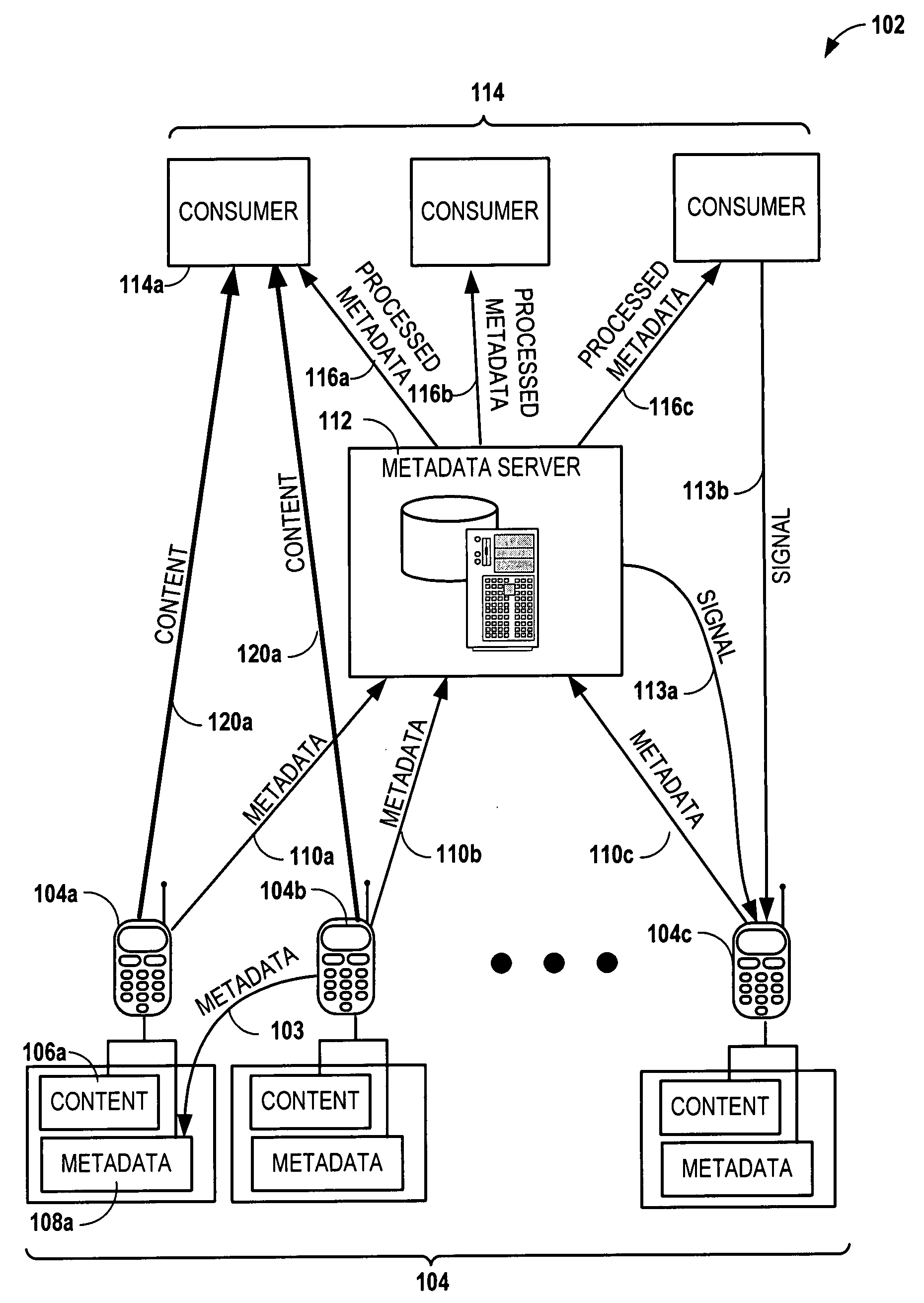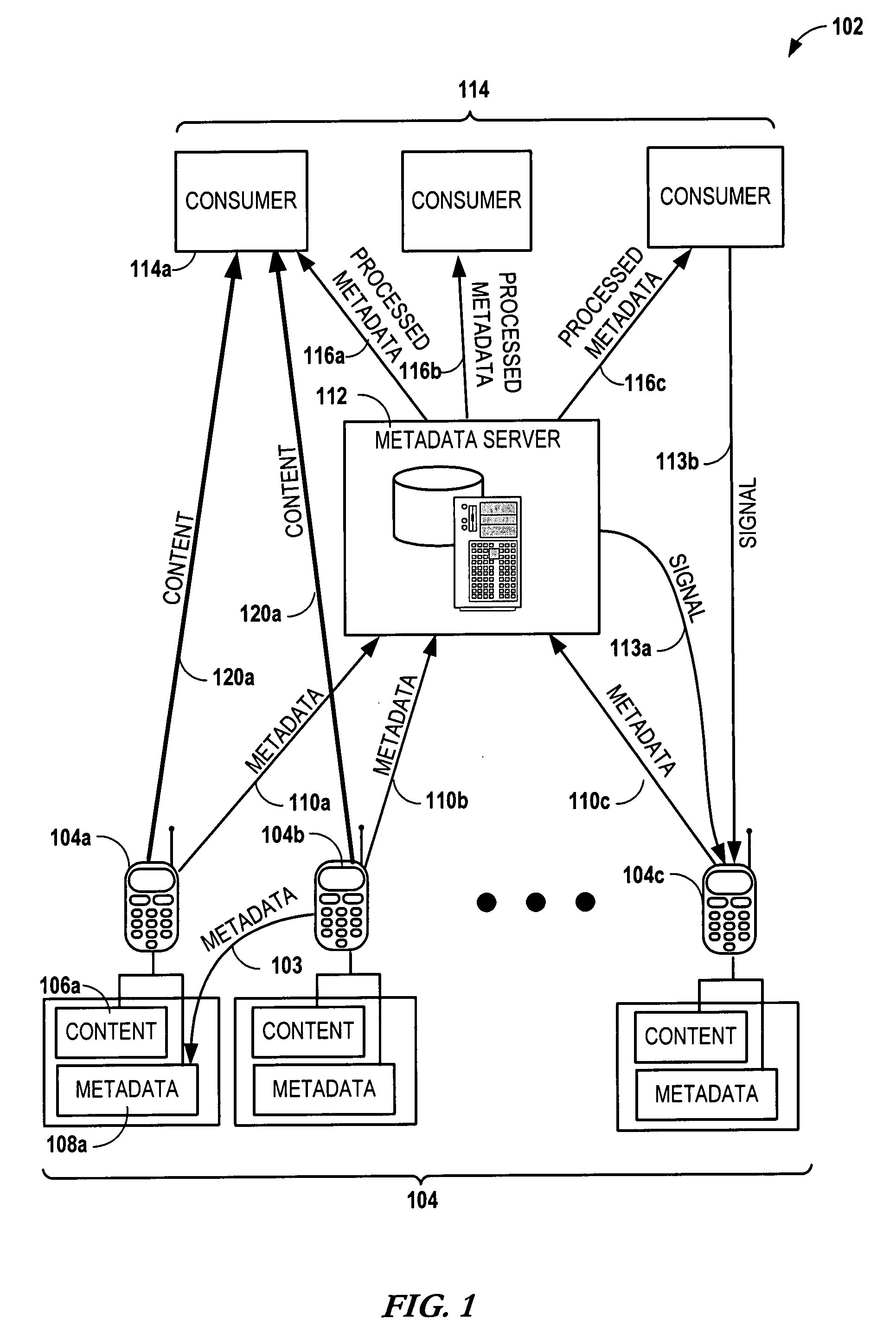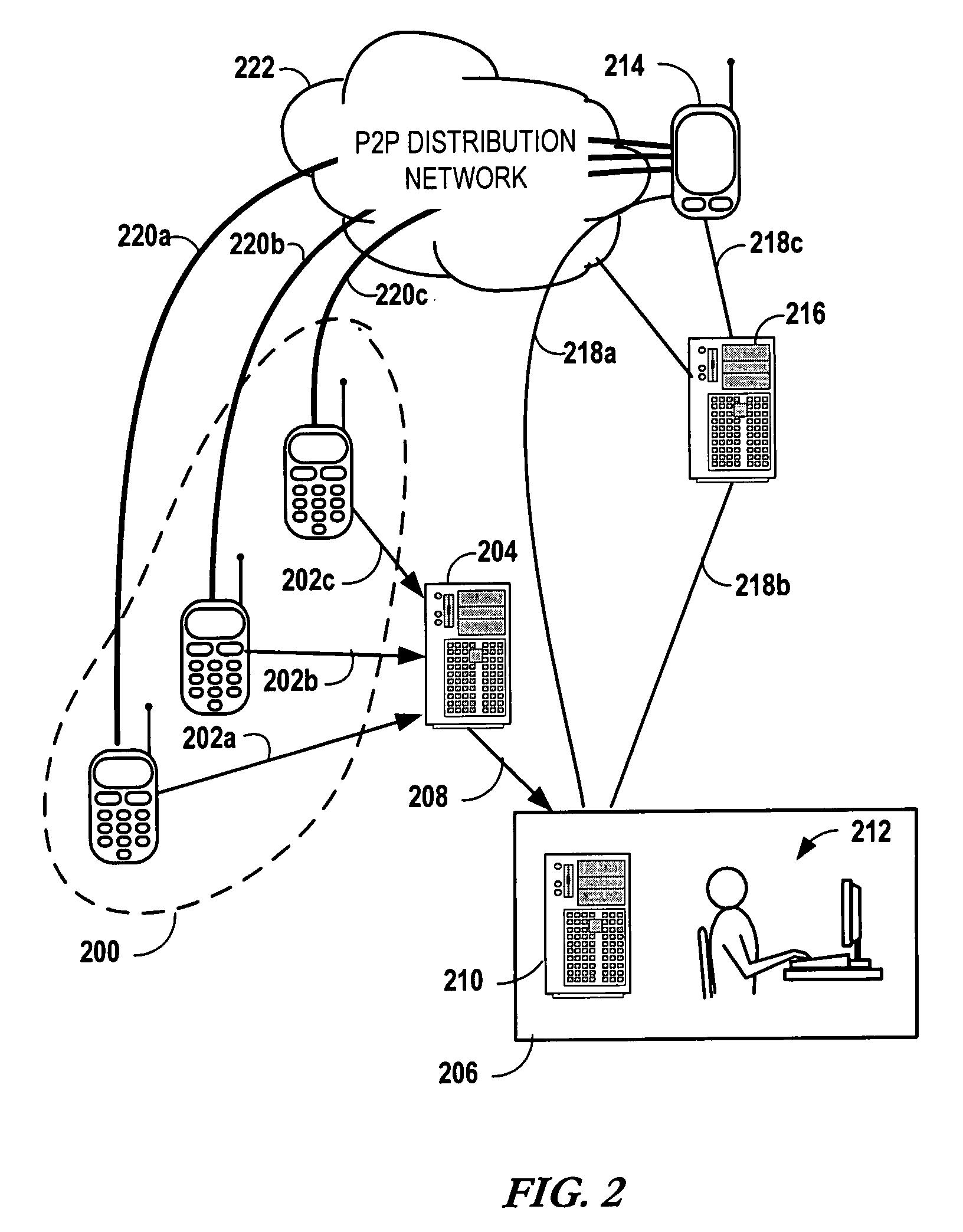Discovering peer-to-peer content using metadata streams
- Summary
- Abstract
- Description
- Claims
- Application Information
AI Technical Summary
Benefits of technology
Problems solved by technology
Method used
Image
Examples
Embodiment Construction
[0034]In the following description of various exemplary embodiments, reference is made to the accompanying drawings that form a part hereof, and in which is shown by way of illustration various embodiments in which the invention may be practiced. It is to be understood that other embodiments may be utilized, as structural and operational changes may be made without departing from the scope of the present invention.
[0035]Generally, the present invention is directed to discovering peer-to-peer content created from mobile devices using metadata streams. As described in greater detail below, the content may include video, but the concepts relating to the invention may be equally applicable to other media such as voice recordings, still photos, biometric data, sensor data, etc. The content may be in any format, including file downloads or streams. Generally, terms such as “content,”“videos,”“video clips,” etc. may refer to both content that is ultimately provided in file and / or streaming...
PUM
 Login to View More
Login to View More Abstract
Description
Claims
Application Information
 Login to View More
Login to View More - R&D
- Intellectual Property
- Life Sciences
- Materials
- Tech Scout
- Unparalleled Data Quality
- Higher Quality Content
- 60% Fewer Hallucinations
Browse by: Latest US Patents, China's latest patents, Technical Efficacy Thesaurus, Application Domain, Technology Topic, Popular Technical Reports.
© 2025 PatSnap. All rights reserved.Legal|Privacy policy|Modern Slavery Act Transparency Statement|Sitemap|About US| Contact US: help@patsnap.com



